Search the Special Collections and Archives Portal
Search Results
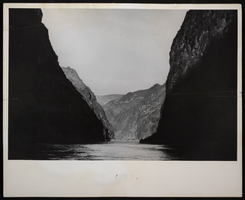
Photograph of Colorado River, Black Canyon, circa 1930-1935
Date
Archival Collection
Description
Image
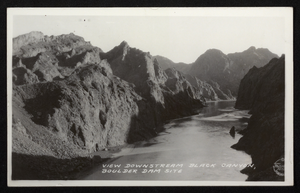
Postcard of Colorado River, Black Canyon, circa 1930-1935
Date
Archival Collection
Description
Image
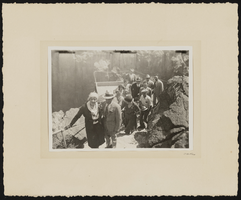
Photograph of a wedding party at the Black Canyon Mountains (Nev.), 1932
Date
Archival Collection
Description
Image
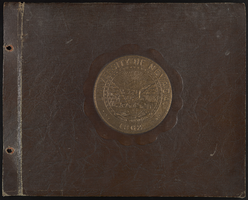
People and places in Southern Nevada and other locations across the United States: photograph album and ephemera
Date
Archival Collection
Description
Image
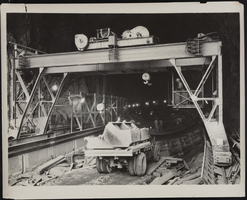
Trucks bringing concrete from the mixing plant: photographic print
Date
Archival Collection
Description
Image
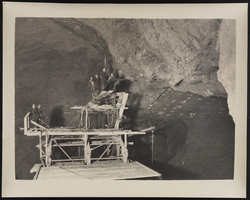
Unidentified construction workers on top of a large piece of equipment: photographic print
Date
Archival Collection
Description
Image
Josie Dondich Papers
Identifier
Abstract
The Josie Dondich Papers (1935-1974) document the Dondich family in Las Vegas, Nevada. The collection contains correspondence to Senator Patrick McCarran, documents about Alex Dondich's military service and death, and photographs. It also includes documents of Mrs. L.G. Johnson, the sister of Josie Dondich.
Archival Collection
Desert Sculptors Association Records
Identifier
Abstract
The Desert Sculptors Association Records (1913-2015) contain agendas, minutes, reports, financial records, photographs of sculptures, and descriptions of community service projects. There is also a scrapbook that chronicles the organization's activities, members, and various sculptures.
Archival Collection

